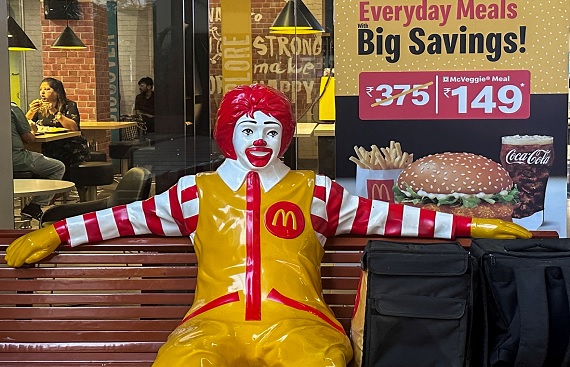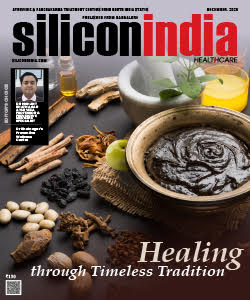US Tariffs Spark Calls to Boycott American Brands in India
By
siliconindia | Monday, 11 August 2025, 04:04:47 PM IST

- US tariffs on Indian goods have sparked calls in India to boycott major American brands like McDonald’s, Coca-Cola, Amazon, and Apple.
- Supporters of Prime Minister Modi and groups like Swadeshi Jagran Manch are promoting 'buy local' campaigns as a patriotic response.
- Despite the boycott calls, many Indian consumers continue to patronize US brands, viewing tariffs as a diplomatic issue separate from daily purchases.
India is witnessing growing calls for a boycott of major US-based multinational brands such as McDonald’s, Coca-Cola, Amazon, and Apple, as anti-American sentiment gains momentum following the Trump administration’s imposition of a 50 percent tariff on Indian goods. The move has rattled exporters and strained ties between New Delhi and Washington, with business leaders and supporters of Prime Minister Narendra Modi urging Indians to prioritize local products and reduce dependence on American companies.
US brands have long held a significant place in India’s consumer market. The country is the largest user base globally for Meta’s WhatsApp, and Domino’s operates more outlets in India than anywhere else. American beverage giants like Pepsi and Coca-Cola dominate shelves, while new Apple stores and Starbucks cafes often draw enthusiastic crowds. These brands symbolize aspiration for many Indians, representing a connection to global lifestyles and quality.
However, the recent tariffs imposed by the US have sparked calls to 'buy local' and boycott American goods, both on social media and through offline campaigns. The Swadeshi Jagran Manch, a group affiliated with Modi’s Bharatiya Janata Party (BJP), organized rallies across India urging people to shun foreign brands. Ashwani Mahajan, the group’s co-convenor, called the movement a matter of 'nationalism, patriotism', and circulated lists of Indian alternatives to foreign bath soaps, toothpaste, and cold drinks through WhatsApp.
On social media, hashtags and graphics encouraging the boycott of foreign food chains, including McDonald’s, have gained traction. Despite the rising rhetoric, there is no immediate evidence that these calls are significantly impacting sales of US brands. For instance, Rajat Gupta, a 37-year-old customer at a McDonald’s outlet in Lucknow, said he wasn’t bothered by the boycott campaign and enjoyed his coffee priced at just 49 rupees (around 55 cents). “Tariffs are a matter of diplomacy, and my McPuff, coffee should not be dragged into it”, he remarked.
Indian entrepreneurs have also weighed in on the debate. Manish Chowdhary, co-founder of Indian beauty brand Wow Skin Science, shared a video on LinkedIn urging support for 'Made in India' products and startups. He highlighted South Korea’s success in building globally recognized food and beauty brands and encouraged Indians to foster a similar national pride in domestic products.
Similarly, Rahm Shastry, CEO of car driver-on-call service DriveU, voiced aspirations for India to develop home-grown digital platforms akin to Twitter, Google, YouTube, WhatsApp, and Facebook, much like China’s self-reliant digital ecosystem.
Despite the growing calls for boycotts, Indian retail companies continue to provide stiff competition to foreign brands in the domestic market, though going global remains a challenge. Indian IT services giants like TCS and Infosys have established themselves strongly on the global stage, offering software and IT solutions worldwide.
Prime Minister Narendra Modi, while not naming any specific companies, made a 'special appeal' for self-reliance during a speech in Bengaluru. He emphasized that while Indian technology firms produce for global markets, 'now is the time for us to give more priority to India’s needs'.
Interestingly, amid the simmering anti-American sentiment, Tesla opened its second showroom in New Delhi on Monday, with officials from India’s commerce ministry and the US embassy in attendance, signaling ongoing business engagements despite political tensions.
The US tariffs are part of a broader strategy by the Trump administration to impose reciprocal duties on countries with which the US has trade deficits, aiming to 'ensure fair trade'. India and Brazil are among the countries facing these steep tariffs.
As India navigates this complex economic and diplomatic landscape, the emerging boycott calls reflect a broader push for economic nationalism and self-reliance, even as many consumers continue to patronize familiar international brands.
Read More News :
Brazil Views US Tariffs as Challenge and Opportunity, Eyes Stronger India Ties
HDFC Bank Partners with VinFast Auto India to Accelerate EV Adoption

.jpg)

.jpg)